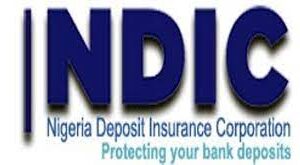As a result of evident lapses in migration reporting, stakeholders have held a two-day capacity building workshop for journalists from print, television, radio and online medium, who were selected from the North West, North Central, South East and South South geopolitical zones.
The workshop, aimed at the review and validation of ethical guidelines for media reportage on migration, was organised by the Civil Society Network on Migration and Development (CSOnetMADE), was held in Abuja on Tuesday and Wednesday and funded by the European Union, within the framework of the EU-IOM Initiative on Migrants Protection and Reintegration in Nigeria, with the International Organisation for Migration (IOM), the National Commission for Refugees, Migrant And Internally Displaced Persons (NCFRMI) and other stakeholders as facilitators.
Addressing participants at the event, the National Coordinator of CSOnetMADE, Mr Emeka Xris Obiezu, revealed that the workshop has been held in other parts of the country to help journalists in migration reporting.
He said: “We are here today on a program we call roundtable forum for the review and validation of ethical guidelines for media reportage on migration. This is a process we started two months ago with building the capacity of media practitioners on effective reportage on migration issues.
“We held this capacity building training in three geopolitical zones. We started with the South East and then went to North West and concluded in South South. At each of these trainings, the participants were able to generate what we call the draft of the ethical guideline. This is what we have come here in this two days to review with terms selected from those three zones and those from Abuja here to look at those generated concepts or guidelines to review, streamline and then validate the outcome.
“Migration itself is a very dynamic reality of human nature both in terms of the terminologies as well as the things associated with it. Even for experts, it is sometimes difficult to catch up with the happenings around migration, how much more those who are doing their other businesses of reporting other issues. So, I’m using that to make an excuse for what I could call lapses.
“But what we have seen generally is that most times the news we get on the media are either following popular opinions or they follow one side of the story. They also review some elements of shallow scrutiny of issues, that is what we could say on a general note on assessment of the media reportage on migration. Because we identify that gap, that is why we designed this project of training the media people on this.”
Furthermore, he said: “We’ve just concluded this under the EU-IOM Initiative for Migrant Protection and Reintegration and I hope another group, I think the National Commission for Refugees, Migrant and Internally Displaced Persons, under the Nigerian Swiss partnership on migration, would be doing another training for North Central media on same reportage issue. So, this shows you both the urgency and the need of doing this, to ensure that the media report migration the way it is supposed to.
“The reason there had to do this is because what media has put out there has held how much influence on both the policymakers and the public as well. We placed that importance in this training so that they will formulate their own programs and reports that will facilitate effective policy formulation and implementation.
“We are working with the Nigerian government on the National migration governance extraction. Our organisation is an active member of that technical working group that looks into the migration issues for the country and one of the elements, which we are doing, is focusing on policies.
“We are tracking the policies that are formulated already, looking at those that needs to be reviewed and insisting on government to design implementation action plans. You may also want to know that this project we are doing is one of the implementation action plans of the national migration policy to train the media, which is also a stakeholder in this. So, we are not relenting. We will keep doing that to ensure that they adjust that.”
Also speaking, the Director of Refugees and Migrants Affairs in NCFRMI, Dr Hassan Ejibunu, said the Commission will continue providing journalists with the prerequisite in migration reporting.
He said: “I wish to commend the organisers of this event. Agreed, we have been and are still in the process of conducting series of media trainings on migration reportage, but the development of the media ethical guidelines from the recent media trainings in the geo-political zones, conducted by CSOnetMADE,within the EU-IOM Initiative on Migrants Protection and Reintegration in Nigeria, is a new innovation and it is highly commendable.
“We are optimistic that by the time these set of guidelines are validated, the problem of use of wrong terminologies by the media; use of dehumanising languages against migrants; and hate speeches against migrants and migration related issues will be curbed.
“With the guideline in place, we expect that the media will start to connect with migrants by engaging migrants in their discourse to get accurate information; victimization of migrants and oversimplification of benefits of migration, such as remittances will be avoided by ensuring balanced coverage; evidence-based public discuss on migrants and migration issues will also be promoted, etc.”




